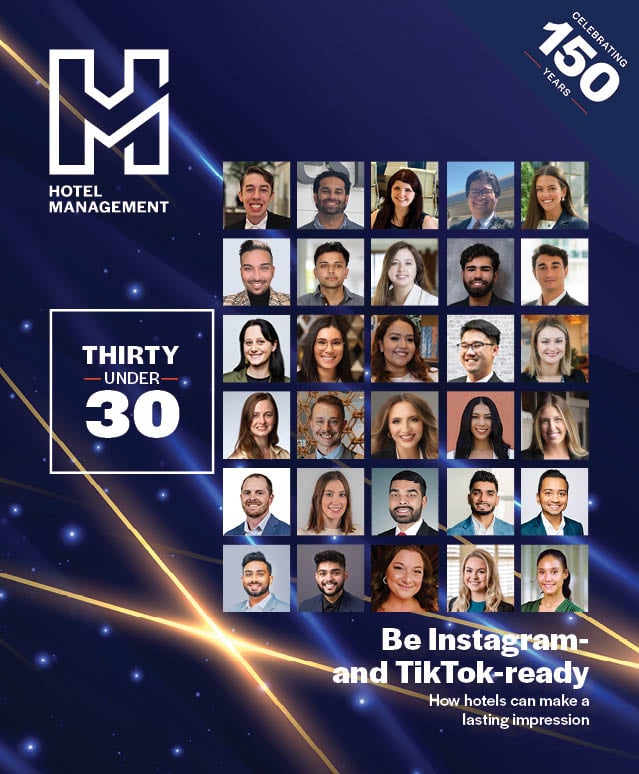BERLIN—The global versus local debate for scaling hospitality companies has never been more important, delegates heard at IHIF EMEA in Berlin on Wednesday.
Satya Anand, president, EMEA, Marriott International said: “We discovered that you cannot take what you do in the U.S. and take it over to other countries,” adding that the nearly century-old company had got much better at attuning its brands for different markets over the last three decades.
He noted that while Courtyard by Marriott had started out by being developed around a physical courtyard in the U.S., limited space in European markets had forced them to “localize the concept.” Moxy was another good example, he said, of a brand designed for the European market which has since successfully expanded elsewhere - with some tweaks. “The typical Moxy room in Europe is 17 square meters. That doesn’t work when you take it to Saudi Arabia,” he noted, while remarking that the brand’s modest room size and large social spaces had been well received in Asia.
David Beers, CEO EMEA, Choice Hotels International, agreed that customization in brand expansion was key. “People and culture are very important,” he said. “We have to adapt culturally to what people want.” He noted that when the business took its Comfort brand to Japan “we couldn’t take a typical footprint that we did in the US, but had to shrink the room because it wouldn’t make a Japanese customer feel comfortable.”
People Business
“We are a people business, and what we do is serve people every day,” added Dimitris Manikis, president EMEA, Wyndham Hotels & Resorts. He also shared important lessons in customizing brands for different regions. “We own the Super 8 brand in US and have a German partner that wanted to bring Super 8 to Germany by adapting it,” he said. He noted that if the group had rejected the idea of modifying the brand, it would have lost out. “Twelve hotels later that makes sense,” he added, noting that this was a case of listening to three local general managers who knew the market well.
Now Super 8 would be expanding to the UK, taking the lessons of Germany with it, he said. “So, listen to your guys on the ground, they know better,” Manikis added. “To adapt to local culture, you have to listen to what local people tell you.”
On the topic of pursuing further growth, Anand said that Marriott was looking for “opportunities to grow in markets where we are not represented geographically or with our brands.” He noted that the firm started looking at midscale a few years ago where it was not “really represented,” but “customers were asking us to be in that space,” he said.
The resulting brand was Four Points by Sheraton, which embraces “flexible conversions.” He added that it had been an immediate success, stating: “It was created just 18 months ago, but we now have 50 hotels in the pipeline, with 25 already open in about eight markets. This is how you can create a brand or take a local brand and spread it across multiple geographies and jurisdictions.”
Technological Advantage
Anand added that technology would play an increasingly important role in “delivering what people want.” “Traditionally, our industry has been called not fast enough in keeping up with technology. We think AI is a tremendous advantage for us going forward. Customer journeys today are not so smooth or easy, but technology can make it so much easier for our associates to ultimately deliver what our customers want,” he said.
Added Beers: “I believe that the big win will come when innovation is modular. One size doesn’t fit all, and tech needs to be adapted to customers.” He said that adapting and personalizing at a local level would enable the firm “to meet the needs of [its] guests.” He said that he also viewed AI as “a tool that will allow the operator to spend more time getting to know the customer.”

